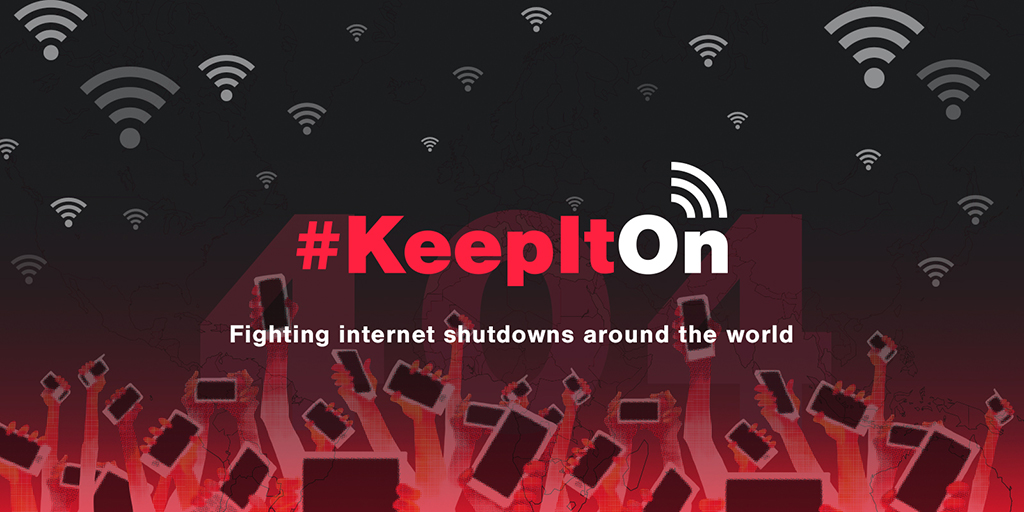Read in Arabic here.
The Algerian and Sudanese governments have both shut down the internet during the general high school diploma examination as a measure to stop exam cheating. This included blocking of social media services, such as Facebook, Twitter, WhatsApp, and other services, to prevent questions from being leaked on these platforms.
This is not the first time that Sudan and Algeria have shut down the internet during examination periods, as this practice has been systematically carried out for many years. In this context, Access Now reiterates its firm stance: we must end internet shutdowns and blocking in any shape or form, as this constitutes a blatant violation of the U.N. resolution condemning internet shutdowns and an encroachment upon people’s fundamental human rights, including the right to access information and the right to enjoy the freedom of opinion and expression online. Internet users are at risk when they are blocked from accessing online platforms and websites, which prevents them from getting the latest news updates. This is especially critical right now in the global health crisis, as the most recent developments are found online and on social media.
Algeria
More than half a million pupils started their baccalaureate exams in Algeria on September 13. This year, the exceptional circumstances were not limited to the coronavirus outbreak and spread of the disease across the country; authorities also introduced abusive judicial sanctions in cases related to cheating in exams.
Algerian authorities continued their practice of imposing internet shutdowns and indeed increased internet restrictions, as the internet was difficult to access during the examinations and was sometimes blocked altogether, following the pattern of the past few years, and justified once again as a way to prevent cheating in exams. Algeria Telecommunications Corporation, the public and main network operator, shut down the internet from September 13-17, from 7:30 AM until 6:00 PM. Just like in previous years, the company failed to issue any official declaration or statement regarding the shutdown.
The imposition and practice of such policies not only affects pupils, but also impacts everyone else in Algeria. Indeed, these policies violate Algerian internet users’ rights to access information on the internet, and prevent them from communicating and sharing their views online freely and safely, which contributes to the isolation of these users from the rest of the world. Every year when high school exams are administered in the country, all Algerians have to wait until exams are finished to use the internet.
To make matters worse, the Algerian authorities have introduced strict anti-cheating amendments to the penal code, which came into effect in April of this year, and according to which cheating in exams has become a crime punishable by law with imprisonment of up to 15 years. Furthermore, the judiciary has been tasked, for the first time ever, with looking into cases of exam cheating and leaking as well as determining penalties thereof, which are tasks undertaken by the Ministry of Education in previous years. Subsequently, and for the first time, the judiciary has sentenced a high school student to one year in prison for leaking the questions of the exam held in early September.
Algerians were the victims of the largest number of internet shutdowns in North Africa last year, as the authorities cut access to the country’s internet six times in total. Therefore, Algeria is a “leader” among the countries that violate internet users’ rights in the African continent.
Sudan
Telecommunications companies in Sudan informed their subscribers that, following orders from the judicial authorities, internet services would be shut down on a daily basis starting from September 12, for at least three hours each day during exams, from 8 AM until 11 AM. In response, the Sudanese people voiced their dissatisfaction with these measures on various social media platforms and stated that they are ineffective and cannot reduce exam cheating, based on previous experiences.
Sudan has a history of imposing internet shutdowns; the authorities have previously turned to shutdowns not only in efforts to prevent cheating in exams, but also in attempts to suppress protests, such as during the December 2019 revolution, when the government-imposed internet blackout lasted for more than a month.
Access Now calls on all relevant entities and authorities responsible for internet shutdowns in both Sudan and Algeria to immediately cease imposing shutdowns and restore internet users’ access to news websites and social media platforms. Shutting down the internet to prevent cheating on exams is not an efficient or effective way to thwart cheating. Rather, shutdowns hurt human rights, contribute to the disruption of public affairs, and cause huge financial losses the longer the shutdown lasts.
